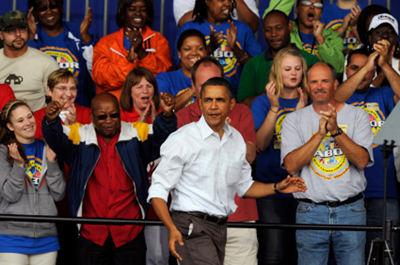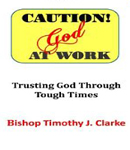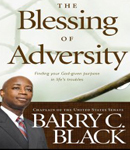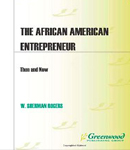|

CELEBRATION OF VOCATIONS DAY (LABOR DAY)
Sunday, September 1, 2013
Guest Writer for This Unit: Lydell C. Lettsome
Board Certified General Surgeon, Crystal Run Healthcare, NY, and Minister to Children & Youth, Convent Avenue Baptist Church, New York, NY
The unit you are viewing, Celebration of Vocation Day (Labor Day), is a compact unit. This means that it is not a complete commentary of the Scripture(s) selected for this day on the calendar, nor does it have a full, supporting cultural resource unit and worship unit. Instead, to enliven the imagination of preachers and teachers, we have provided a sermonic outline, songs, suggested books, and suggested articles, links, and videos. For additional information, see Celebration of Vocation Day (Labor Day) in the archives of the Lectionary for 2009–2012.
I. Description of the Liturgical Moment
The First Labor Day
The first Labor Day holiday was celebrated on Tuesday, September 5, 1882, in New York City, in accordance with the plans of the Central Labor Union. The Central Labor Union held its second Labor Day holiday just a year later, on September 5, 1883. Ironically, the national unemployment rate was almost 20%, which still remains our country's highest unemployment rate ever. Like today, the titans of industry were making untold profits at the expense of their employees.
In 1884, the first Monday in September was selected as the holiday, as originally proposed, and the Central Labor Union urged similar organizations in other cities to follow the example of New York and celebrate a "workingmen's holiday" on that date. The idea spread with the growth of labor organizations, and in 1885, Labor Day was celebrated in many industrial centers of the country.
A Nationwide Holiday
Originally, Labor Day observances were usually a street parade to exhibit to the public "the strength and esprit de corps of the trade and labor organizations" of the community, followed by a festival for the recreation and amusement of the workers and their families. Speeches by prominent men and women were introduced later, as more emphasis was placed upon the economic and civic significance of the holiday. Still later, by a resolution of the American Federation of Labor convention of 1909, the Sunday preceding Labor Day was adopted as Labor Sunday and dedicated to the spiritual and educational aspects of the labor movement.
The character of the Labor Day celebration has undergone a change in recent years, especially in large industrial centers where mass displays and huge parades have proved a problem. This change, however, is more a shift in emphasis and medium of expression. Labor Day addresses by leading union officials, industrialists, educators, clerics and government officials are given wide coverage in newspapers, radio, and television.
African Americans have long had an ambivalent relationship with the celebration of Labor Day. Modernly, as do many in the general society, Labor Day is viewed by African Americans as another holiday before summer ends. However, it is also a reminder of the difficulties that blacks have historically faced in attempting to secure work for decent pay. We have been locked out of unions, accused of taking jobs that belonged to whites, are under-paid, are not promoted as quickly as whites, and even now we are still the last hired and the first fired.
It is important to remember that Labor Day was created to celebrate and value the American worker, not the American corporation. It does not exist to celebrate American employment opportunity. Labor Day exists to celebrate American employee productivity and creativity. This Labor Day let us celebrate the work ethic that is in all of us.
With this material as our backdrop, we provide a sermonic outline for a Celebration of Vocations Day (Labor Day).
II. Celebration of Vocations (Labor Day): Sermonic Outline
A. Sermonic Focus Text(s): Psalm 90:17 (New Revised Standard Version)
Let the favor of the LORD our God be upon us, and prosper for us the work of our hands—O prosper the work of our hands!
B. Possible Titles
i. Busy Hands, Blessed Hands
ii. The Favor of God's Work
iii. I Work for God
C. Point of Exegetical Inquiry
In any text, there can be several words or phrases that require significant exegetical inquiry. One exegetical inquiry raised by this text is that the key phrases in verse 17 starts with the words "let" & "and." "Let" in the Hebrew text functions as an exhortive command; "and" intrinsically links the two other key words "favor" and "prosper."; The Hebrew word no·am can also mean kindness, grace, or pleasantness. The word for prosper kô·nena(h) literally means to prepare, make firm, or fix.
Hence, the literal translation of the Scripture suggests that the preparation and firmness of human labor is intrinsically linked to God's grace and kindness. Further, it also suggests that without God human work is faulty and unsteady. It is because of God that humans can work with purpose, power, and the right intent. Interestingly the author does not bother to separate spiritual work from the work of daily life. Indeed, in this Psalm that is attributed to Moses, the first 16 verses frame the frail limitations of humanity in light of the awesome power and protection of God.
III. Introduction
Of all the titles and descriptions we may carry in life, few ever surpass that of our vocation. From birth it is embedded upon all our minds that we should grow and do something with our lives. As adults, we quickly learn that whether it is legal or illegal we ought to do something that will generate the resources to provide for ourselves and our children. Our vocation and the labor of our hands can be all-consuming and encompassing. Surely we were created to be productive. Yet the question must be asked about the glory of labors. Are we building monuments to ourselves or to our Creator?
The last phrase of this text suggests that there is more to our labor than merely our own sustenance. The repeated phrase "O prosper the work of our hands" is a plea back to God to participate in our labor. How can God participate in our labor/vocation if we do not take God to work with us? Moreover, if God created us to work, should we not look to do whatever work God has for us to do? The beginning of Psalm 90 proclaims that our survival is dependent on God. Thus it stands to reason that our labor has more purpose than just our survival. In addition, God's participation in our vocation is based upon his kindness and favor. It is a blessing to work and have work to do. As Christians, we should always look for ways to acknowledge and glorify God in our labor.
IV. Moves/Points
Move/Point One – God's favor is upon us.
a. Live with positive expectations;
b. God likes us now! (Most of us think we have to change before God will like us—God hates sin not us); and
c. Our ability to work and create is a sign of God's blessing.
Move/Point Two – Our work and destiny is prepared.
a. God has an earthly plan for us;
b. Work is approved and respected by God; and
c. Our labor should please God.
Move/Point Three – Relax, you're working for God.
a. Our labor can last for generations and eternity;
b. God will do the hard work, just focus on your part; and
c. Focus on giving, not getting (Always glorify God and your work will prosper).
V. Celebration
Genesis 1:31 says, "God saw everything that he had made, and indeed, it was very good. And there was evening and there was morning, the sixth day." This verse reminds me that we were created by a creative and productive God. This same God placed some creative productivity in us. We were created to partner with God and glorify God.
Our survival does not depend on the work of our hands but on the grace and goodness of God. So we can relax and enjoy our work. We are not working for ourselves; we are working for God! The work assigned to us may seem small to people but it's great to God! Our job title may be low to people but it's great to God!
No matter our job title, we work for God! You are not just a firefighter for a city, you are a firefighter for the kingdom. You're not just a doctor at a hospital, you're a doctor for God. You're not just a teacher for a school, you work for God. So on this Labor Day, our job titles do not define us. Our "God-titles" define us. We are God's creation; we are God's beloved; we are children of God.
VI. Illustration(s)
See the Sermon Illustrations section of The African American Lectionary for illustrations that you may wish to use in presenting a sermon for this moment on the liturgical calendar.
VII. Sounds, Sights, and Colors in This Passage
| Sounds: |
Loud shouts of praise from those who know they work for God; people working in fields and in buildings;
|
| Sights: |
Bountiful crops; livestock; corporate board rooms; people standing in unemployment lines; people feeding the hungry; and people smiling as they work.
|
VIII. Songs to Accompany This Sermon
A. Well-known Song(s)
- Hold My Mule. By Shirley Caesar and Harold Williams
- Teach Me to Wait. By F.C. Barnes
- I'm Determined. By Damon Little
B. Modern Song(s) (Written between 2005–2012)
- Have Your Way. By Anita Wilson
- Teach Me. By Vincent Tharpe
- Rescue. By Forever Jones
C. Congregational Song(s)
- What a Mighty God We Serve. Traditional. Arr. by Stephen Key
- The Jesus in Me. Anonymous. Arr. by Cynthia Wilson
- He'll Understand and Say Well Done. By Lucie E. Campbell. Arr. by Evelyn Simpson-Curenton
- I Give All to You. By Lanelle Harris. Arr. by William S. Moon
D. Liturgical Dance Music
- Walk Alone. By Joi Campbell, Warryn Campbell, Isaac Carree, and Eric Dawkins
- Down Here I've Done My Best. By Napoleon Brown and Selah Jubilee Singers
E. Song(s) or Instrumental(s) for the Period of Prayer
- I Will Serve Thee. By Gloria Gaither and William Gaither
- Close to You. By Heidi Stampley and Micah Stampley
F. Sermonic Selection(s)
- Teach Me. By Michael Rogers
- Wait. By Cedric Thompson and Lejuene Thompson
G. Benediction Song(s)
- Now. By J. J. Hairston
- Releasing My Faith. By Charles Jenkins
IX. Videos, Audio, and/or Interactive Media
X. Books to Assist in Preparing Sermons, Bible Studies, and/or Worship Services Related to Labor Day

|
Clarke, Timothy J. Caution: God at Work: Trusting God Through Tough Times. Columbus, OH: Powerful Purpose Publishing, 2011. |

|
Black, Barry C. The Blessing of Adversity: Finding Your God-given Purpose in Life's Troubles. Carol Stream, IL: Tyndale Momentum, 2011. |

|
Rogers, W. Sherman. The African American Entrepreneur: Then and Now. Westport, CT: Praeger, 2009. |
 |
Carson, Ben. Think Big: Unleash Your Potential for Excellence. Grand Rapids, MI: Zondervan, 2006. |
XI. Links to Helpful Websites for Celebration of Vocations
XII. Notes for Select Songs
A. Well-known Song(s)
- Hold My Mule. By Shirley Caesar and Harold Williams
Location:
Caesar, Shirley. The Lord Will Make a Way. Brentwood, TN: EMI, 1997.
- Teach Me to Wait. By F.C. Barnes
Location:
When It Rains It Pours. Atlanta, GA: AIR Gospel, 1990.
- I'm Determined. By Damon Little
Location:
Little, Damon & Nu Beginning. You Can't Straddle the Fence. Houston, TX: Worldwide Gospel, 2002.
B. Modern Song(s) (Written between 2005–2012)
- Have Your Way. By Anita Wilson
Location:
Worship Soul. Brentwood, TN: EMI Gospel, 2012.
- Teach Me. By Vincent Tharpe
Location:
Tharpe, Vincent & Kenosis. Live in Memphis. Bowie, MD: EPM, 2012.
- Rescue. By Forever Jones
Location:
Musical Revival. Brentwood, TN: EMI Gospel, 2012.
C. Congregational Song(s)
- What a Mighty God We Serve . Traditional. Arr. by Stephen Key
Location:
African American Heritage Hymnal. Chicago, IL: GIA Publications, 2001. #478
- The Jesus in Me. Anonymous. Arr. by Cynthia Wilson
Location:
Zion Still Sings for Every Generation. Nashville, TN: Abingdon Press, 2007. #132
- He'll Understand and Say Well Done. By Lucie E. Campbell. Arr. by Evelyn Simpson-Curenton
Location:
African American Heritage Hymnal. #413
- I Give All to You. By Lanelle Harris. Arr. by William S. Moon
Location:
Zion Still Sings. #101
D. Liturgical Dance Music
- Walk Alone. By Joi Campbell, Warryn Campbell, Isaac Carree, and Eric Dawkins
Location:
Carree, Isaac. Uncommon Me. Los Angeles, CA: Sovereign Agency, 2011.
- Down Here I've Done My Best. By Napoleon Brown and Selah Jubilee Singers
Location:
Take 6. One. Newton, NJ: Shanachie, 2012.
E. Song(s) or Instrumental(s) for the Period of Prayer
- I Will Serve Thee. By Gloria Gaither and William Gaither
Location:
Randle, Lynda. God on the Mountain. Alexandria, IN: Gaither Music Group, 2005.
- Close to You. By Heidi Stampley and Micah Stampley
Location:
Stampley, Micah. Ransomed. Houston, TX: Music World Music, 2008.
F. Sermonic Selection(s)
- Teach Me. By Michael Rogers
Location:
Walker, Hezekiah Walker and The Love Fellowship Tabernacle Children's Choir. Recorded Live at Love Fellowship Tabernacle. New York, NY: Verity, 1998.
- Wait. By Cedric Thompson and Lejuene Thompson
Location:
Armstrong, Vanessa Bell. Walking Miracle. Brentwood, TN: EMI, 2007.
G. Benediction Song(s)
- Now. By J. J. Hairston
Location:
Hairston, J. J. & Youthful Praise. After This. Nashville, TN: Light Records, 2011.
- Releasing My Faith. By Charles Jenkins
Location:
Jenkins, Charles & The Fellowship Chicago. The Best of Both Worlds. Chicago, IL: Inspired People, 2012.
|